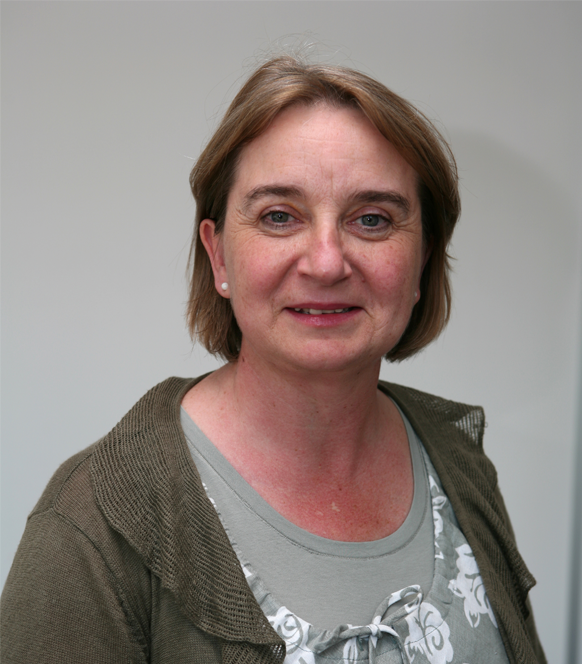by Margaret Rooke
Those not involved with charities may witness organisations rise apparently from nowhere, entering the national conscience as they bring new issues to the fore. As everyone inside the charity world knows, none of this happens by chance. In the background will be a team and, if a charity’s lucky, that team will have been led by Eileen Maybin: compassionate and fearless, strategic, tirelessly striving for those truly needing their voices to be heard.
Eileen was an expert in media and PR: never in the limelight and never needing or desiring to be. It may sound like a contradiction, but Eileen was self-effacing and modest while having complete confidence that her skillset would help propel the organisations she worked for into the spotlight and deliver their messages to an audience of millions. She was right. This is precisely what she achieved.
Eileen joined Fairtrade just after the turn of the century when the concept was known to few and was mostly associated packs of coffee bought in church halls. Together with then Chief Executive Harriet Lamb their dream was to ‘to get Fairtrade on the telly and make the Fairtrade Mark as famous as the Woolmark’. There were few staff; they had few resources and no idea if their ambitions could be achieved. But Eileen doggedly fought for every print piece of coverage to include the visual of the Fairtrade Mark; she achieved regular TV coverage and, after some years, 9 out of 10 people in the UK know about Fairtrade. That is Eileen’s Fairtrade legacy.
Over a ten year period, numbers of products carrying the Mark rose from 80 to 4,500, awards conferred on many of them; sales rose from £30million to more than £1.32billion; gongs went to several leaders and campaigners; collaborations were established with some of the UK’s best-known brands and supermarket chains; the Fairtrade Foundation won Charity of the Year, PR Week Awards, the Queen’s Award for Sustainable Development and so much more.
Again, none of this ‘just happens’. It’s the culmination of building relationships, exhaustive discussions with public affairs teams and corporate executives and – most importantly for Fairtrade – listening to the farming organisations and those they represent who are at the very heart of Fairtrade and whose role and voice Eileen always promoted.
Tanzanian Fairtrade coffee farmers’ leader Raymond Kimaro once said, ‘We don’t want charity. Pay us a fair price for what we grow and we will make poverty history for ourselves.’ This message was Eileen’s driving force. She was determined to ensure that Fairtrade products would gain as much visibility as they possibly could, in all possible outlets, taking up all opportunities. She knew that every purchase of a banana or bar of chocolate changed a life on the other side of the world. One year her team delivered 5000 pieces of media coverage during Fairtrade Fortnight, the culmination of seemingly endless hours in the office.
Eileen was deeply loyal – to the organisations she worked for and to the teams she built around her. Once you had won Eileen’s approval, she would do anything for you.
However the opposite was also true. Any lazy journalist who attacked Fairtrade without good research would be ground down by Eileen with facts, figures and information. She had always thought through all possible angles and arguments to every story, looking at an issue inside-out and upside down. Tiny, and seemingly quiet, Eileen was tenacious and determined when defending initiatives that benefited the marginalised.
Eileen built relationships with many well-known personalities. She travelled to Ghana to meet Fairtrade banana farmers with comedian Harry Hill; to Rwanda with Oz Clarke, where he made a moving TV programme about coffee farmers, and also to South African wine producers; and visited farming groups with Countdown’s Nick Hewar and film, TV and theatre actor Adjoa Andoh. She’d watch with delight from behind the scenes in breakfast TV studios and radio shows as they reported back about the importance of Fairtrade. They could talk effortlessly about this, of course, as they’d seen it first-hand for themselves.
Eileen was central to the Fairtrade Foundation partnership with Dorling Kindersley that produced the Fairtrade Everyday Cookbook: delicious recipes that showed how easily anyone who cares where their food comes from can buy, cook and eat using Fairtrade ingredients. Thanks to Eileen’s influence the book included stories of the lives of Fairtrade farmers, and recipes came from Fairtrade campaigners as well as celebrity chefs. As part of the editorial team Eileen personally baked every dish in the book and hordes would loiter around her desk when she came in with the results – her baking was second to none.
Fairtrade was part of an everyday lifestyle for Eileen and always remained so. Eileen needed her work for Fairtrade to succeed because, as with all her other achievements, what mattered most was the impact this would have on those for whom Fairtrade was conceived: those most vulnerable at the beginning of the supply chain; farmers and workers who, thanks to Fairtrade, were earning a fair price for what they grew and produced and played a democratic part in the organisations they belonged to.
Eileen was loyal and dedicated to them all and this showed in every challenge, project and opportunity. Her deep, deep integrity drove all Eileen’s decisions at work and at home and was coupled with a wicked sense of humour and a shining glint in her eye.
Eileen’s Fairtrade family sends our deep condolences to her family and friends.
